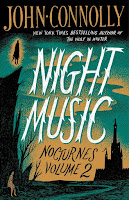Meanwhile, Brian McGilloway has just published the third in his Lucy Black series, PRESERVE THE DEAD (Corsair), with the blurb elves wittering thusly:
Detective Sergeant Lucy Black is visiting her father, a patient in a secure unit in Gransha Hospital on the banks of the River Foyle. He’s been hurt badly in an altercation with another patient, and Lucy is shocked to discover him chained to the bed for safety. But she barely has time to take it all in, before an orderly raises the alarm - a body has been spotted floating in the river below...Writing in last weekend’s Irish Times, Declan Hughes was very impressed indeed with PRESERVE THE DEAD. For the full review, clickety-click here …
The body of an elderly man in a grey suit is hauled ashore: he is cold dead. He has been dead for several days. In fact a closer examination reveals that he has already been embalmed. A full scale investigation is launched - could this really be the suicide they at first assumed, or is this some kind of sick joke?
Troubled and exhausted, Lucy goes back to her father’s shell of a house to get some sleep; but there’ll be no rest for her tonight. She’s barely in the front door when a neighbour knocks, in total distress - his wife’s sister has turned up badly beaten. Can she help?
In PRESERVE THE DEAD, Brian McGilloway weaves a pacy, intricate plot, full of tension to the very last page.
John and Brian co-launch their books at No Alibis in Belfast later this month, with the details as follows:
No Alibis is pleased (very, very pleased!) to invite you to our store on Thursday 22nd October at 7pm for the Double Launch Party of John Connolly and Brian McGilloway’s latest works, NIGHT MUSIC: NOCTURNES VOLUME 2 and PRESERVE THE DEAD.
We will also be celebrating the launch of our 4th limited edition publication. We are running a limited printing of NIGHT MUSIC: NOCTURNES VOLUME 2 by John Connolly. This edition is limited to 125 specially bound and slipcased copies, including exclusive artwork commissioned by Anne M. Anderson.
This incredibly special event will be sponsored by Boundary Brewing Company. An event not be missed, folks!


